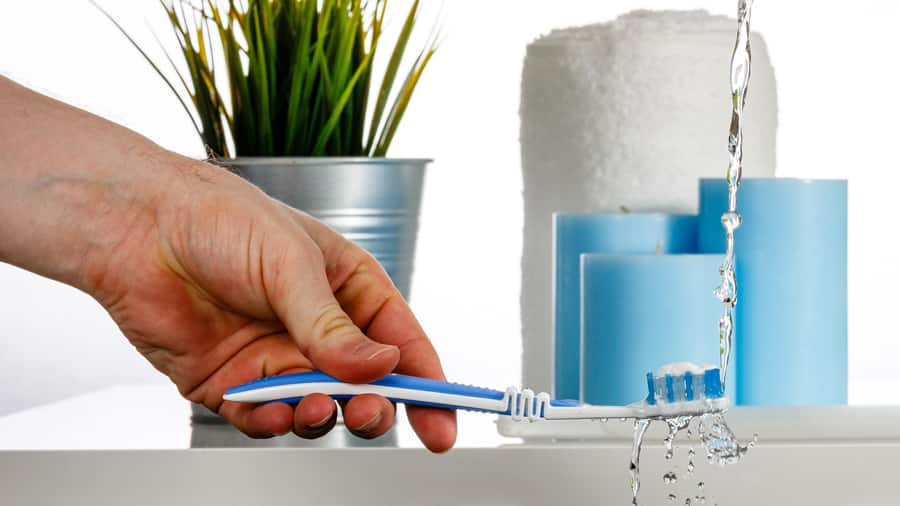Since our mouths contain bacteria and the bathroom does as well, it's common to wonder if your toothbrush stays clean enough with just a rinse after brushing, especially since some products now claim to sanitise. Toothbrush sanitising, however, is not the same as sterilising. Sanitation means 99.9 percent of bacteria are reduced. With sterilisation, all living organisms are destroyed. But is a sanitising of your toothbrush a necessity or a preference?
What the American Dental Association Recommends
According to the American Dental Association, no commercial products can sterilise a toothbrush and it's not necessary. The ADA notes, "There is insufficient clinical evidence to support that bacterial growth on toothbrushes will lead to specific adverse oral or systemic health effects."
Bacteria tends to grow in dark, warm and moist places. Keeping your toothbrush covered or stored in a closed container might lead to problems. Let your toothbrush air dry in a holder that allows it to stand up without touching the bristles or other toothbrushes. Replacing your toothbrush every three-to-four months is also important. Avoid sharing toothbrushes as well.
Keeping it Clean
Most of us simply rinse the toothbrush head once we're done brushing. But a more thorough rinse in warm water ensures that food debris and leftover toothpaste won't remain in the bristles.
The Maryland Children's Oral Health Institute suggests that you may disinfect your toothbrush by allowing it to soak in an antibacterial mouthwash. If you want to sanitise, toothbrush heads should be immersed for about 15 minutes in mouthwash. Any longer could damage the bristles. And don't share or reuse that mouthwash, it defeats the purpose.
According to the ADA a study indicates that soaking a toothbrush in 3 percent hydrogen peroxide or Listerine mouthwash greatly reduces (i.e., 85 percent) bacterial load, while microwaving or putting toothbrushes in the dishwasher is not recommended as such high heat may damage the brush.
Some Exceptions
If someone in your family is sick or is at a higher risk of infection, taking some preventive steps may help guard against a problem. Replacing toothbrushes more often, buying disposable toothbrushes and using antibacterial mouthwash to rinse and soak could offer some benefit. If you choose to try a UV toothbrush sanitiser, the product should be approved by the Food and Drug Administration. Keep in mind that a UV sanitiser will not remove all germs. Because the ultraviolet light may deteriorate the bristles, you should inspect and replace your toothbrush more often.






